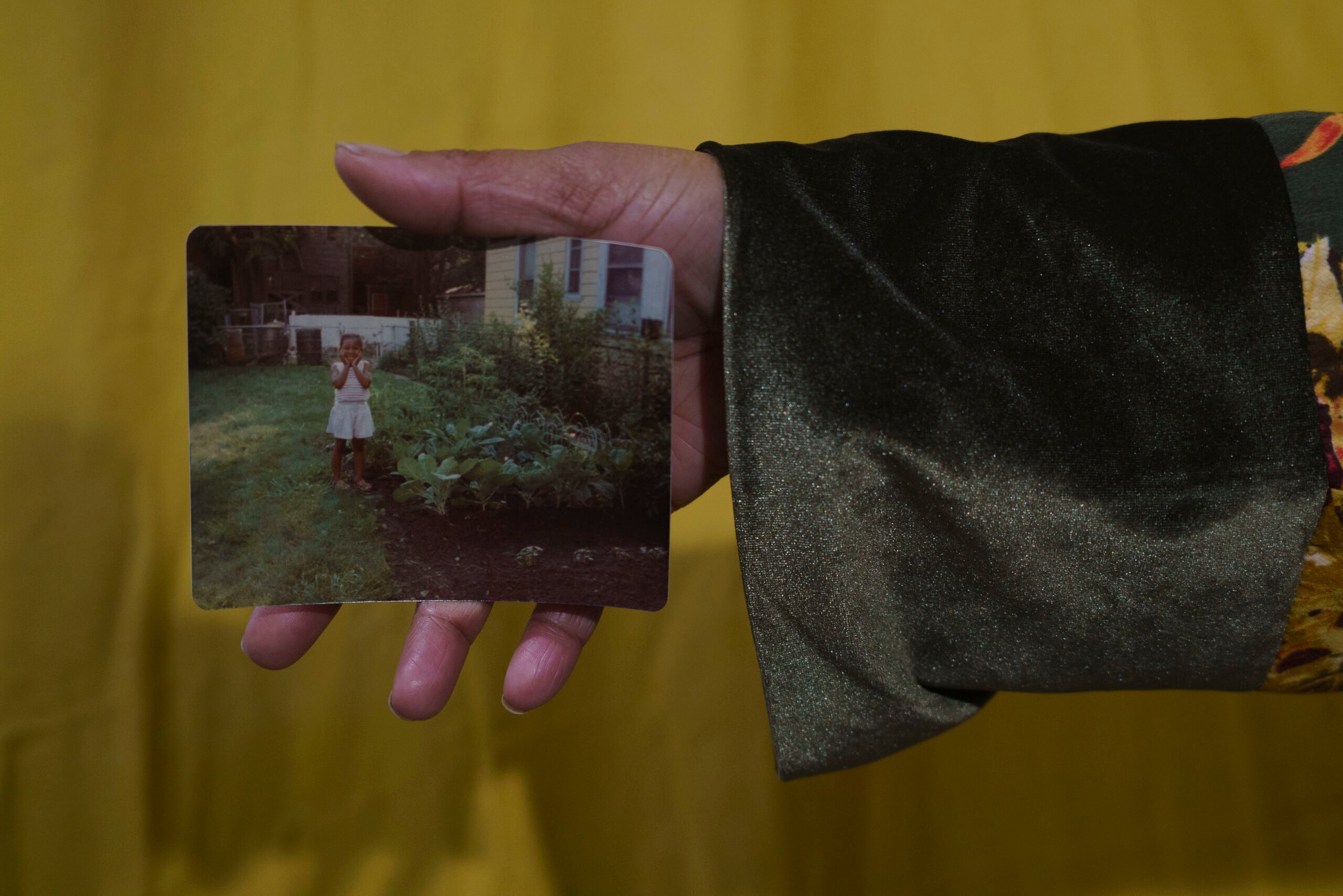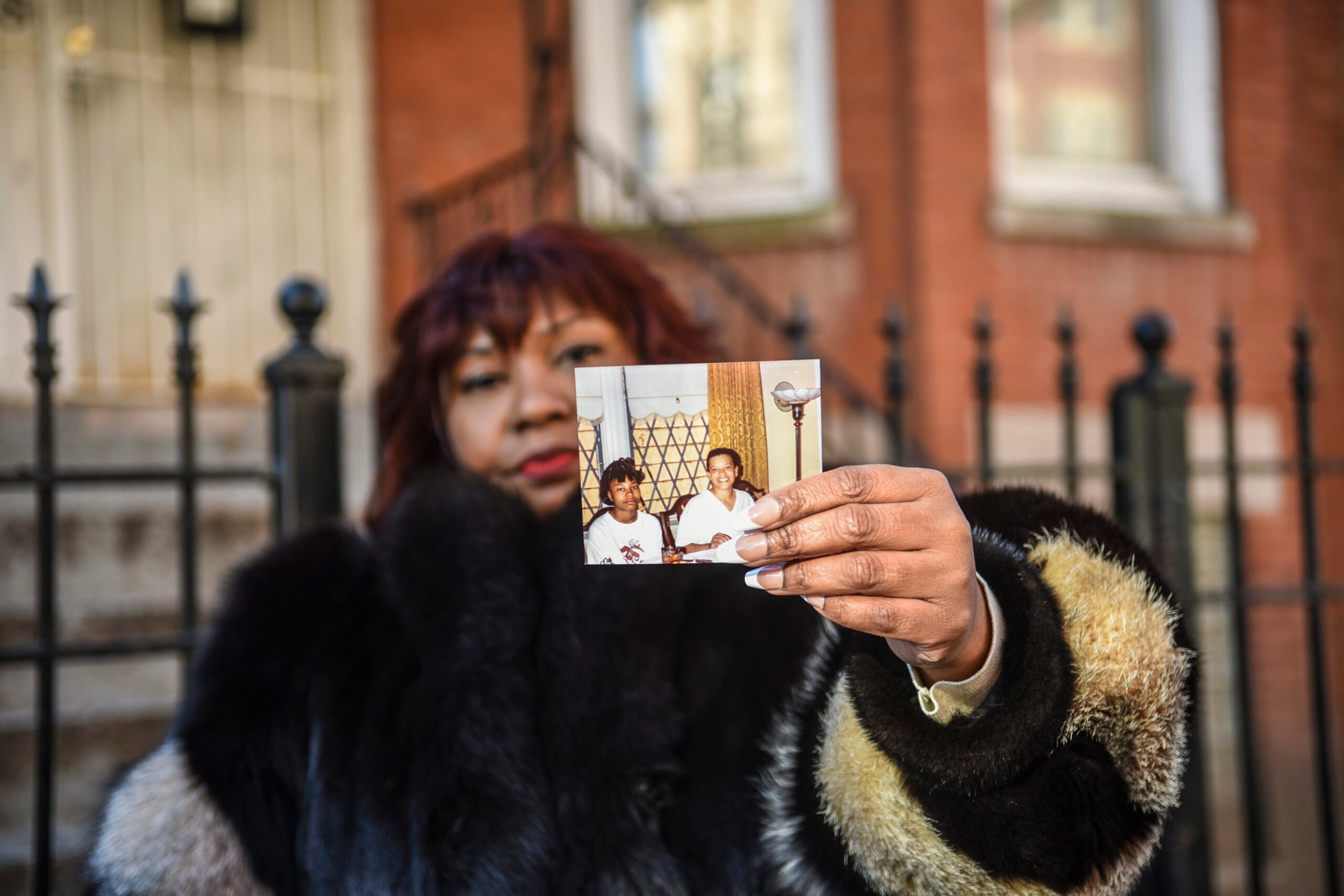On March 20, 2023, I got a call telling me that my dear friend Kim “Casper” Williamson was shot and killed. I met Casper in the early ’90s after my family moved to Woodlawn from Hyde Park. At first, I couldn’t process his death. I’d like to think it was my body protecting me.
As I sat at Casper’s funeral, listening to his daughter speak, I realized he had successfully positioned his family to not need anything financially. That aspect of Casper’s death reminded me of a death in my own family and the financial and emotional toll it took. I thought I’d let down my neighbors in Woodlawn by not helping them plan for a better financial future — especially because I travel the country speaking at seminars about financial literacy and closing the wealth gap. What more, I thought, could I have done for the neighborhood I left?
I grew up in Chicago’s Hyde Park neighborhood at a time when you could send your child outside to play and know they would come back home safely. The beach along Lake Shore Drive was my backyard. My friends and I regularly went to the Museum of Science and Industry and Harpers Court Movie Theatres. We dined at Thai Siam, Giordanos, and El Lugar. Having multiple parks to choose from was a luxury. We would build clubhouses in the alleys because they were clean. The neighborhood was vibrant, multicultural, and rich with history, architecture, and design. Our neighbors were artists, historians, bankers, activists, doctors, students, and even included Harold Washington, the former mayor of Chicago. Hyde Park had many two-parent homes where the fathers worked and the mothers stayed home. My neighbors were usually in a rush. I thought it was because they had somewhere to be in life.

In 1992, after eight years in Hyde Park, my mother and step-father, Stanley ‘China Man’ Muldrow, moved our family southwest into Woodlawn to save money on rent. Living in Woodlawn was a complete culture shock. I was so upset that I wouldn’t play outside for an entire year. Many homes were in bad condition, people seemed to roam aimlessly, and gun shots could be heard at all times. I didn’t understand why I had to live there. I didn’t see the beauty of Woodlawn and everything it had to offer. It felt like a place that seemed almost impossible to survive. I vowed to move away the second I could.
Not long after we moved there, Stanley was shot and killed. Just like Casper, my step-father was shot after intervening in a dispute. Stanley tried to break up a fight between his niece and her abusive boyfriend on a basketball court behind Dunbar High School.
My mother and step-father got married after only three dates — less than a year before his murder. Their relationship provided financial and emotional balance to my mother’s life. He was smitten with her and loved getting up to work at a regular job, then bringing home his check. Because they had moved so fast in their union, we didn’t have much time to develop a personal connection. I was OK with that because he was proving to be upstanding and gentle regardless of his gang ties.
My step-father’s death didn’t leave us poor. Unlike many peers who also lost loved ones in Woodlawn, my family was fortunate enough to have a small insurance policy that helped cover his burial. And because he was murdered on the streets of Chicago, I received a monthly $300 benefit from the state until I went to college. That money helped me continue school and stay focused.
I never saw my mother cry or react to my step-father’s death. I guess her body’s defense mechanism to dealing with the trauma was to work. She was now responsible for taking care of me by herself. This is when I feel like my mother lost balance. She always made sure I had the best of things, lots of money in my pockets, but she couldn’t be there because she was always trying to keep herself busy to not deal with the loss of her husband.
By the time I was ready to experience Woodlawn firsthand, there were only a few people in the neighborhood that I looked forward to seeing, and Casper was one of them. He lived on the next block. He was definitely living in the fast lane as part of a street organization, but he was different in that he always showed respect to everyone, no matter their age. He was creative and wise. I felt safe when he was around.
There weren’t enough Caspers in my life to make me want to stay in Woodlawn. After a few years, I could see how the environment and a lack of parental guidance were having a negative impact on everyone. Many of the boys from the neighborhood were getting killed. In 1996, I left. For many years, I would never speak to anyone from Woodlawn except for Casper. My trauma made me shun the area.
But with some time and distance, I realized that people living in Woodlawn have valuable skills to offer. The neighborhood had tons of children bursting with creativity, and people surviving with just a little bit. It took Casper’s death for me to understand the many facets of the neighborhood and the special people who call it home. Woodlawn is lacking resources by design. People who live there need to be given opportunities like jobs and education to reach their full potential. Change can’t come from those that aren’t invested enough to live there. That is the highest level of commitment and sacrifice.

After sitting with the guilt I started to feel at Casper’s funeral, I came to realize that gun violence perpetuates cycles of poverty. Not only does it leave family members in financial need for funeral costs, and often missing an income, but it also has a bigger ripple effect. The crisis is killing people who have the potential to stabilize their neighborhoods — people who could be leaders and help stem the violence — while simultaneously scaring off residents who could also help improve it economically and culturally. People like me.
Like a distant cousin, I had become once removed from Woodland and twice removed from being a part of change for a community that’s hit hard by gun violence. The trauma of losing friends and family while living in Woodland fueled my desire to leave. Now, I realize I had it all wrong.

